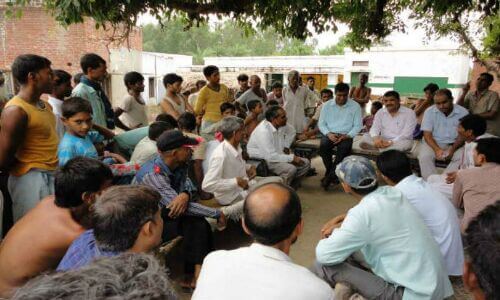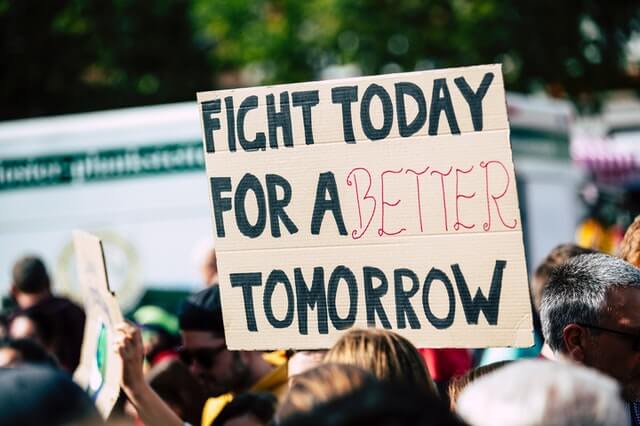This Blog is written by Anwesha Kundu from Amity University, Kolkata. Edited by Pranoy Singhla.
Sexual Harassment is an unwelcome sexual advance, unwelcome request for sexual favours or other unwelcome conduct of a sexual nature which makes a person feel offended, humiliated and/or intimidated,where a reasonable person would anticipate that reaction in the circumstances…
This Blog is written by Raman Poonia from VGU School of Law, Vivekananda Global University, Jaipur. Edited by Pranoy Singhla.
There is no universal definition of medical ethics and more often than not, it is quite difficult to explain it. A broad interpretation could mean the moral and not legal obligations that a medical practitioner is supposed to abide by. However, there are a lot of times when some of the standards known as medical ethics have legal effect as well. Medical law is made up of bits from a large number of different branches of law…
This Blog is written by Raman Poonia from VGU School of Law, Vivekananda Global University, Jaipur. Edited by Pranoy Singhla.In India, Nyaya Panchayats have existed since ancient times and played very important role in dispute resolution in villages. In Vedic age there were in existence of Panchayat republics. The Vedic Sabha and Samiti were having elected bodies including representative in character with voting rights to women. These institutions could probe into the conduct of kings, the misdeeds of the ministers and the abuse of power…
This Blog is written by Raman Poonia from VGU School of Law, Vivekananda Global University, Jaipur. Edited by Pranoy Singhla.
The contemporary era is marked as the era of consumers. No country can knowingly or unknowingly disregard the interest of the consumers. This can be argued on the basis of fast enactment of consumer protection laws in almost all part of the world. Apart from the consumer protection laws in developed world, we could find the accelerated rate of lawmaking or consumers in developing countries like Thailand, Sri…
This Blog is written by Reva Gupta from Symbiosis Law School, Noida. Edited by Pranoy Singhla.
In India, the “Negotiable Instruments Act” was passed in “1881”. [1]Earlier to its implementation, the regulations of the “English Negotiable Instruments Act” applied in “India”, and the existing Act is based on the “English Act” with some revisions. Text writers speculate on the early origins of these instruments. Of course, the system of bills of trade could not have existed in early cultures; for one thing, money, which it…
This Blog is written by Shanu Agarwal from Manav Rachna University, Faridabad. Edited by Pranoy Singhla.
Defamation is an associate panoptic term that covers any intentional false communication, either written or spoken, that harms a person’s reputation; decreases the respect, regard, or confidence during which an individual is held; or induces derogative, hostile, or disagreeable opinions or feelings against an individual, entity, group, government, etc. Written defamation is termed “libel,” whereas spoken defamation is…
This Blog is written by Rahul Chatwal from Christ University, Pune. Edited by Pranoy Singhla.
Workers’ rights should be a central focus of development. To protect the rights of the worker’s several labour laws came into force. Labour laws are the most common type of law that is formed to protect the rights of the workers they are also known as the employment law. The labour laws are the laws that maintain the relationship between the workers, trade unions, and the government. Labour laws in India are…
This Blog is written by Rahul Chatwal from Christ University, Pune. Edited by Pranoy Singhla.
It is truly said that “goodness is the only investment which never fails.” In today’s era when there are so many international firms that are gaining a large amount of profit, they should also do something good for society because society is the only reason because of which they are only able to earn a large amount of profit so doing something good will motivate them and ultimately there will be the positive effect that…
This Blog is written by Jatin Pandey from Dharmashastra National Law University, Jabalpur. Edited by Pranoy Singhla.
Section 2(12) of the Juvenile Justice Act defines who is child under the act, according to it a person who is below the age of 18 years is a child. Section 2 (13) of the Juvenile Justice Act defines who is child in conflict with law under this act. According to this section child who commits or alleged to commit the offence and child has not completed 18 years of age is considered as child in conflict with law under this…
This Blog is written by Pranjal Rai from Amity Law School, Lucknow. Edited by Pranoy Singhla.
Barclays is a major global financial services provider engaged in retail banking, credit cards, corporate banking, investment banking, wealth management and investment management services with an extensive international presence in Europe, the Americas, Africa and Asia. With 145,000 employees in over 50 countries, Barclays moves, lends, invests and protects money for more than 49 million customers and clients…
This Blog is written by Harshit Rai from Amity Law School, Lucknow. Edited by Pranoy Singhla.
Corruption is one of the foremost insidious social phenomena. It erodes trust publicly institutions, hinders economic development and features a disproportionate impact on the enjoyment of human rights, particularly by folks that belong to marginalised or disadvantaged groups such as minorities, people with disabilities, refugees, migrants and prisoners. It also disproportionately affects women, children and…
This Blog is written by Soujanya Boxy from National Law University, Odisha. Edited by Pranoy Singhla.
Law is derived from variety of sources. Judicial precedents founded on the concept of stare decisis are a source of law as they provide a framework or support on which to rely in instances involving similar facts. The doctrine of stare decisis says that “past decisions must stand”. The fundamental belief upon which the common law systems are built could be the concept that similar cases should be dealt in similar…
This Blog is written by Saptaswara Chakraborty from North Eastern Hill University, Meghalaya. Edited by Pranoy Singhla.
The court fees is levied by the government on the people who are seeking judicial remedies through a legislation. This structured form of levitation from the people ensures that the economy of the court gets maintained. The concept of court fee for the very first time was introduced by the Britishers in the year 1795 through Regulation 38 and was implemented in various Presidencies including the Bengal…
This Blog is written by Bhagyashree Dutta from Amity University, Mumbai. Edited by Pranoy Singhla.
Urbanization has grown rapidly over the years, it is evident that urbanization is not only a determinant of economic development, but also a consequence of it. The ability of a nation to accomplish its economic goals is dependent on its ability to govern its cities, hence urban management and governance has gained significant importance. This is partly attributable to the fact that metropolitan centers make a…
This Blog is written by Oshin Suryawanshi from Amity Law School, Noida. Edited by Pranoy Singhla.
As an idea, prostitution has been characterized by friendly researcher in various manners relying upon the degree of its commonness. The most generally acknowledged definition; be that as it may, is the one given in the reference book of sociology which characterizes prostitution “as the training wherein a female offers her body for wanton sex for employ and so on Nonetheless, another definition has been begat for the word…
This Blog is written by Oshin Suryawanshi from Amity Law School, Noida. Edited by Karan Dutt.
The practice of imposing a legal maximum (rent ceiling) upon the rent during a particular housing market, below the equilibrium rent is named rent control. But if the rent is about at A level below the equilibrium rent, it’ll necessarily cause a situation of excess demand or shortage. During a free market, prices (here, rents) would rise automatically filling the gap between the demand and therefore the supply…
This Blog is written by Anish Bachchan from Amity Law School, Noida. Edited by Karan Dutt.
Imagine watching a World War 2 documentary on Netflix. And you got a glimpse of the Shoah or the Holocaust in layman terms. You see the gas chambers, the concentration camps, the Einsatzgruppen (Nazi Death Squads), the trains carrying dead bodies and the poor condition of people living in the concentration or extermination camps. It might startle or even disgust you. That is the grim reality of war, it is not…
This Blog is written by Tisha Roy from NALSAR University of Law, Hyderabad. Edited by Karan Dutt.
Techniques like PND (Pre- natal Diagnostic) are performed on a developing foetus. These tests use technologies like foetoscopy, ultrasound, chorion villi biopsy etc to carry out diagnosis on foetus. These test are used to find out health conditions of child, after PND if it is found out that child has some disorder or genetic condition then parents/ mother have option to terminate the pregnancy or continue with it. However…
This Blog is written by Tisha Roy from NALSAR University of Law, Hyderabad. Edited by Pranoy Singhla.
Gender justice has been far from reality in India. Women have always been discriminated on various grounds; one such ground is property inheritance and coparcenary rights. Such kind of limitations keeps women deprived of their fundamental rights and hinders their personal and economic growth. With India being largest democracy in the world and longest written constitution, steps were taken to remove the…
This Blog is written by Tisha Roy from NALSAR University of Law, Hyderabad. Edited by Pranoy Singhla.
Dismissal of an employee can be generally understood as the process of termination from the employment by the employee against the desire of the employee. Employment law deals with the relationship between employee and employer. It is more concerned with the way of working of the employees, working conditions, working hours, termination etc…
This Blog is written by Tania Abraham from Symbiosis Law School, Hyderabad. Edited by Oshin Suryawanshi.
When India gained independence in 1947, its leaders discovered a unified confessional system- similar to that of Egypt- in place, under which the personal laws of Hindus, Muslims, Christians, Sikhs, Buddhists, Jains and Parsis were directly applied in civil courts by secularly trained Anglo- Indian judges. This system of personal law was formally acquired and merged into the legal system of the new state with the adoption…
This Blog is written by Reva Gupta from Symbiosis Law School, Noida. Edited by Oshin Suryawanshi.
“Marriage, dowry, guardianship, adoption, maintenance, gifts, wills” and so on are all elements of family or personal law. Religion and personal law are intricately linked in India. “Hindus”, “Sikhs”, “Jains”, and “Buddhists” follow “Hindu family law” whereas “Muslims”, “Christians”, and “Parsees” have their “own laws”; and other ethnic groups, such as tribal groups, follow their own traditions or customs. The…
This Blog is written by Rithu from Ramaiah college of law, Bangalore. Edited by Oshin Suryawanshi.
According to article 356(1), if the president, after receiving a report from the state governor or other parties, believes that there is a situation where he cannot lead the state government in accordance with the provisions of the constitution, the president may issue a public announcement: carry out all or some of the functions of the state government, and all or some of the powers granted or exercised by the…
This Blog is written by Raman Poonia from VGU School of Law, Vivekananda Global University, Jaipur. Edited by Oshin Suryawanshi.
Equal participation by women and men in both economic and social development can benefit them equally from societies resources, which is also crucial for achieving gender justice. The UNIFEM (United Nations Development Fund for Women) was created in 1976 to provide technical and financial assistance for women’s empowerment. The Convention on the Elimination of all forms of Discrimination against…
This Blog is written by Rahul Chatwal from Christ University, Pune. Edited by Oshin Suryawanshi.
The framers of the Constitution of India from the very beginning had decided that there should be a separation of power to remove chaos and the problems that are raising so they classified the power into three categories they are legislative, judicial, and executive. This concept of separation of power was taken from the American Constitution. Each body was assigned with a different set of functions and they all have…
This Blog is written by Harshit Rai from Amity Law School, Lucknow. Edited by Oshin Suryawanshi.
Rohingyas are an ethnic minority from Myanmar’s Rakhine state, who have been facing aggressive persecution at the hands of the Myanmar government, military and Buddhist nationalists. Several Lakhs of Rohingyas have fled their country in the recent past to seek refuge in neighbouring countries. While the Rohingya claim that they are indigenous to the Rakhine region of Myanmar, the Myanmar government…
This Blog is written by Soham Kamble from School of Law, University of Mumbai. Edited by Oshin Suryawanshi.
A writ petition was filed under Article 32 by Joseph Shine challenging the constitutionality of Section 497 of IPC read with Section 198 of Cr. P.C., being violative of Article 14, 15 and 21. This was at first a PIL filed against adultery. The petitioner claimed the provision for adultery to be arbitrary and discriminatory on the basis of gender. The petitioner claimed that such a law demolishes the dignity of a woman. The…
This Blog is written by Anusuya Ghosh from KIIT School of Law, Odisha. Edited by Oshin Suryawanshi.
Families considering relocating overseas, whether returning home or migrating to another country, should be informed of the legal implications of their decision, both in terms of planning and potential consequences after they arrive at their destination. Child relocation encompasses much more than basic movement. For many families and their children, moving overseas has become a common experience…
This Blog is written by Khushi Gupta from Vivekananda Institute of Professional Studies, New Delhi. Edited by Oshin Suryawanshi.
Intellectual property is protected by providing the inventors the exclusive right to use their innovation, which includes the exclusion of others from using their creations. As a result, it is simple to understand why intellectual property rights (IPR) would have a direct and significant influence on business and commerce – the owner of an IPR may, in exercising his or her right, restrict the manufacturing, use, or sale of a…
This Blog is written by Soumya Bhardwaj from Bennett University, Greater Noida. Edited by Oshin Suryawanshi.
Human actions have an ever-increasing influence on the environment. It is taking place across the world, including in India. We are so enamored with the benefits that nature gives that we frequently overlook the cost to the ecosystem. In today’s world, a complete halt to development efforts is probably unthinkable, since the economy trumps all other concerns…
This Blog is written by Prerna Ganti from Symbiosis Law School, Hyderabad. Edited by Ujjawal Vaibhav Agrahari.
Eviction is the process of removing or evicting the person living in a house, land or apartment owned by another. In simple words, eviction is forcefully removing a tenant or a person from a particular premise owned by them. It is done by following a legal procedure under civil law. However, most of the times, eviction is done without giving legal notice. Tenants are evicted due to various reasons. The court judges…
This Blog is written by Aditya Awasthi from Asian Law College, Noida. Edited by Ujjawal Vaibhav Agrahari.
The demand for alcohol is always high in India even if the price is rising. While some people consume alcohol occasionally, some people in India consume alcohol every day. As a lot of people consume alcohol, there are various laws regarding liquor in India. Alcohol is something whose demand and sale do not fall but can rise only with time. There are various laws regarding alcohol in India and there is no uniformity in…
This Blog is written by Ruthika Reddy from St. Francis College for Women, Hyderabad. Edited by Ujjawal Vaibhav Agrahari.
For ages, alcoholic beverages have been in use in human societies, and their history is old as mankind. Alcohol consumption patterns are continually evolving, and today, alcohol is the most commonly consumed beverage in the world. India’s alcohol culture has grown as a result of colonization. Alcohol constitutes one of the most important products of the world addiction demand. The alcohol industry is seldom…
This Blog is written by Ginit Pal Kaur Bal from Amity Law School, Noida. Edited by Ravikiran Shukre.
There are some basic rights which are possessed by every individual from their birth in any country such as the means of freedom, life, freedom to speech, to choose, to move etc. and this are needed to be backed up by the means of support from natural justice. such are the basic civil liberties but yet they can be inflicted by the means of the punishments , the prime and the most important work of the state is to…
This Blog is written by Rithu from Ramaiah college of law, Bangalore. Edited by Ravikiran Shukre.
Although the Indian media does not shine much light on this issue it is a known fact that most of the police brutality which takes place in India is unaccounted for solely on the basis that they are law enforcement officers. Police brutality is the use of unnecessary force and violence by law enforcement officers. Police brutality is the abuse of power which includes physical and verbal harassment physical or…
This Blog is written by Akshara Lagisetty from Amity University, Mumbai. Edited by Ravikiran Shukre.
When we live in a society where the occurrence of disagreements, disputes, conflicts are very common, in the same way the occurrence of dispute between two countries is also common. But when conflict occurs in between two citizens the law governing the citizens solves the conflict, whereas when a conflict arises between countries occurs international law come into picture. United Nations, UN charter upholds…
This Blog is written by Surbhi Pareek from NALSAR University of Law, Hyderabad. Edited by Ravikiran Shukre.
The lawful right of people which enables them to determine their own political status and choose their own plans and policies for social, cultural and economic development in the international system is defined as self-determination. The relevance of the right comes from people’s ability to choose. Minorities groups or communities may either aim at and achieve political independence or rather complete inclusion into a state as a…
This Blog is written by Vijayalakshmi Raju from Dr. Ambedkar Global Law Institute, Tirupati. Edited by Ravikiran Shukre.
Humanity is divided into two halves: males and women. Neither can achieve its maximum level of creative greatness without the other’s help. The role of women must be imagined as expressed by Tagore in Chitra: “I am no goddess to be adored, nor yet the objects of common pity to be swept away with indifference like a moth.” If you want to keep me by your side in the face of risk and courage, if you let me share the…
This Blog is written by Riya Gupta from Jindal Global Law School, Haryana. Edited by Ravikiran Shukre.
The two statutes that regulate the valuation of the suits are The Court Fees Act of 1870 and the Suits Valuation Act of 1887. The valuation done in order to determine the jurisdiction is done under the Suits Valuation Act 1887 and the valuation to determine the amount of court fees payable is regulated under the Court Fees act 1870. For the objective of determining the court fee in particular classes of suits, the fee can be…
This Blog is written by Shanu Agarwal from Manav Rachna University, Faridabad. Edited by Ravikiran Shukre.
India has a federal form of government together with a strong emphasis on local self-government. At all levels, the government and government-owned enterprises play a key role in the Indian economy – in addition to performing sovereign functions, the government has a large commercial footprint in several sectors, including defence, education, civil aviation, railways (a near monopoly), infrastructure and…







































